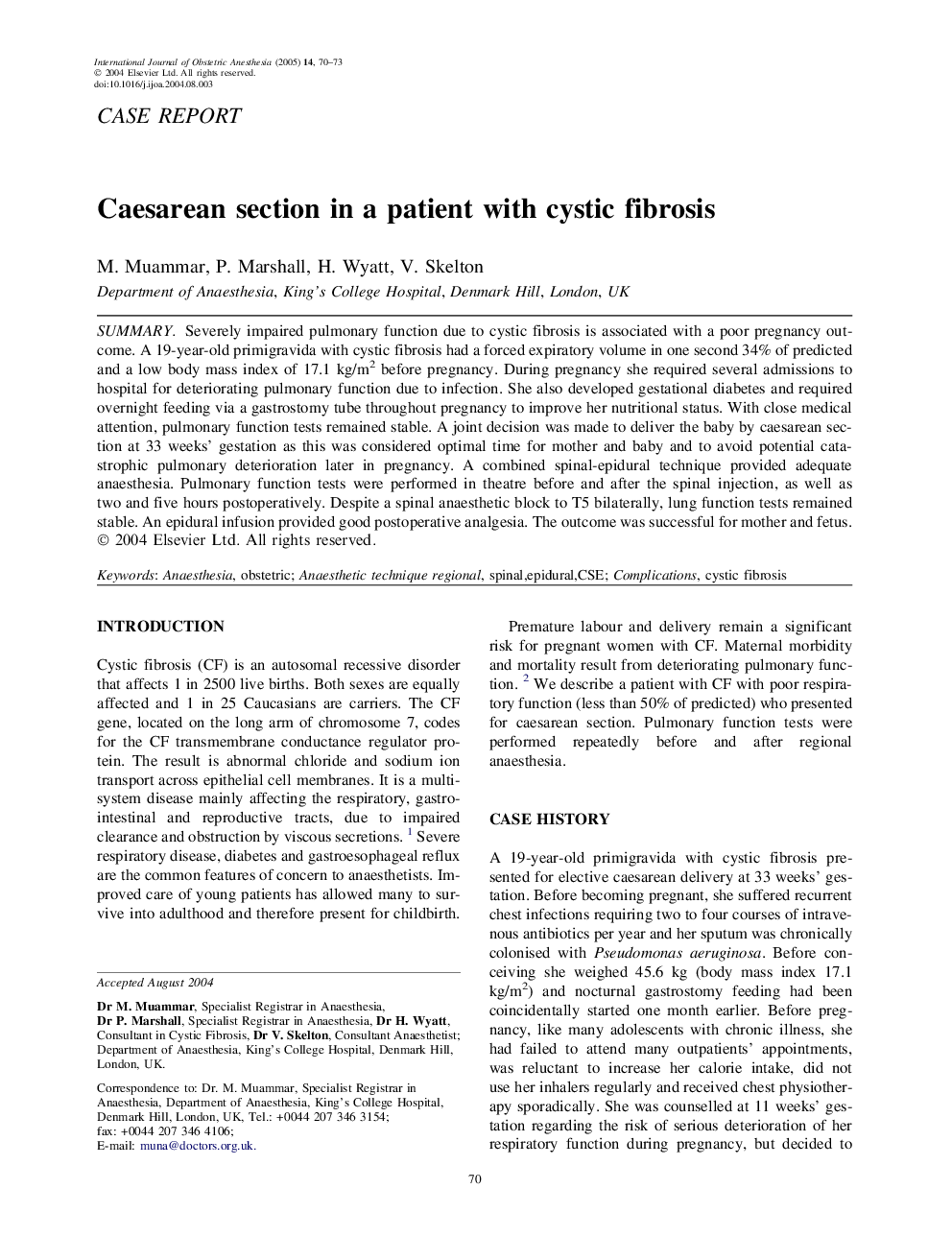| Article ID | Journal | Published Year | Pages | File Type |
|---|---|---|---|---|
| 9933044 | International Journal of Obstetric Anesthesia | 2005 | 4 Pages |
Abstract
Severely impaired pulmonary function due to cystic fibrosis is associated with a poor pregnancy outcome. A 19-year-old primigravida with cystic fibrosis had a forced expiratory volume in one second 34% of predicted and a low body mass index of 17.1 kg/m2 before pregnancy. During pregnancy she required several admissions to hospital for deteriorating pulmonary function due to infection. She also developed gestational diabetes and required overnight feeding via a gastrostomy tube throughout pregnancy to improve her nutritional status. With close medical attention, pulmonary function tests remained stable. A joint decision was made to deliver the baby by caesarean section at 33 weeks' gestation as this was considered optimal time for mother and baby and to avoid potential catastrophic pulmonary deterioration later in pregnancy. A combined spinal-epidural technique provided adequate anaesthesia. Pulmonary function tests were performed in theatre before and after the spinal injection, as well as two and five hours postoperatively. Despite a spinal anaesthetic block to T5 bilaterally, lung function tests remained stable. An epidural infusion provided good postoperative analgesia. The outcome was successful for mother and fetus.
Related Topics
Health Sciences
Medicine and Dentistry
Anesthesiology and Pain Medicine
Authors
M. Muammar, P. Marshall, H. Wyatt, V. Skelton,
